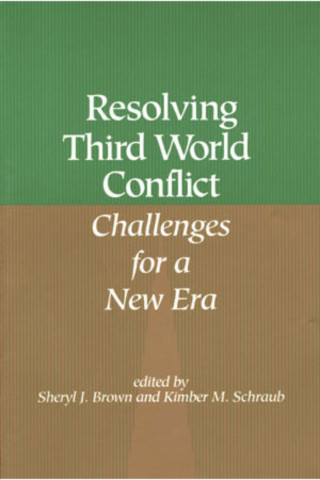Resolving Third World Conflict
Now that the Cold War has ended, the Third World may be freer of external influences, but is it any more stable? Indeed, while U.S.-Soviet rivalry sometimes exacerbated conflicts in Asia, Africa, and Latin America, just as often it restrained interstate – and even intrastate – violence.
In this wide-ranging exploration of today’s Third World, leading scholars and policymakers confront two questions that frame the search for peace: What are the fundamental sources of conflict in the Third World? How can such conflict be prevented or resolved? Answers to the first question focus on Third World democracy, environmental degradation, foreign aid and economic development, arms proliferation and control, and the distribution and treatment of minorities. The question of how to maintain or regain peace prompts consideration of the past, present, and future roles of religion, democracy, the United Nations, third-party mediation, and superpower engagement.
Expert and insightful, the contributors present a series of informative and stimulating analyses that capture the multifaceted nature of Third World conflict and the prospects for its resolution. The volume concludes with a provocative discussion of the choices facing U.S. policymakers as they reformulate their Third World policies in the post-Cold War era.
Concise well-written, solid scholarship
- Pacific Research

